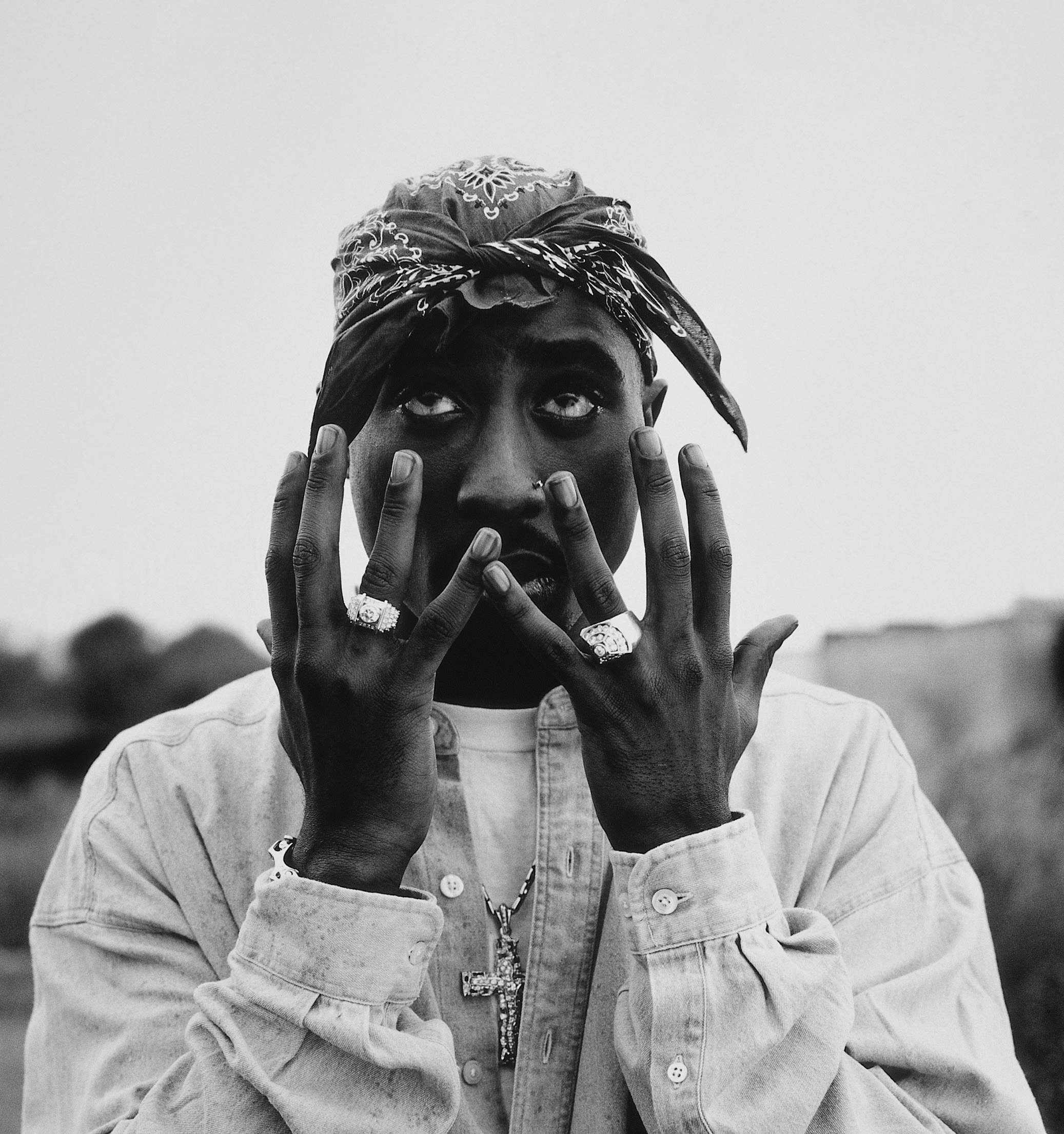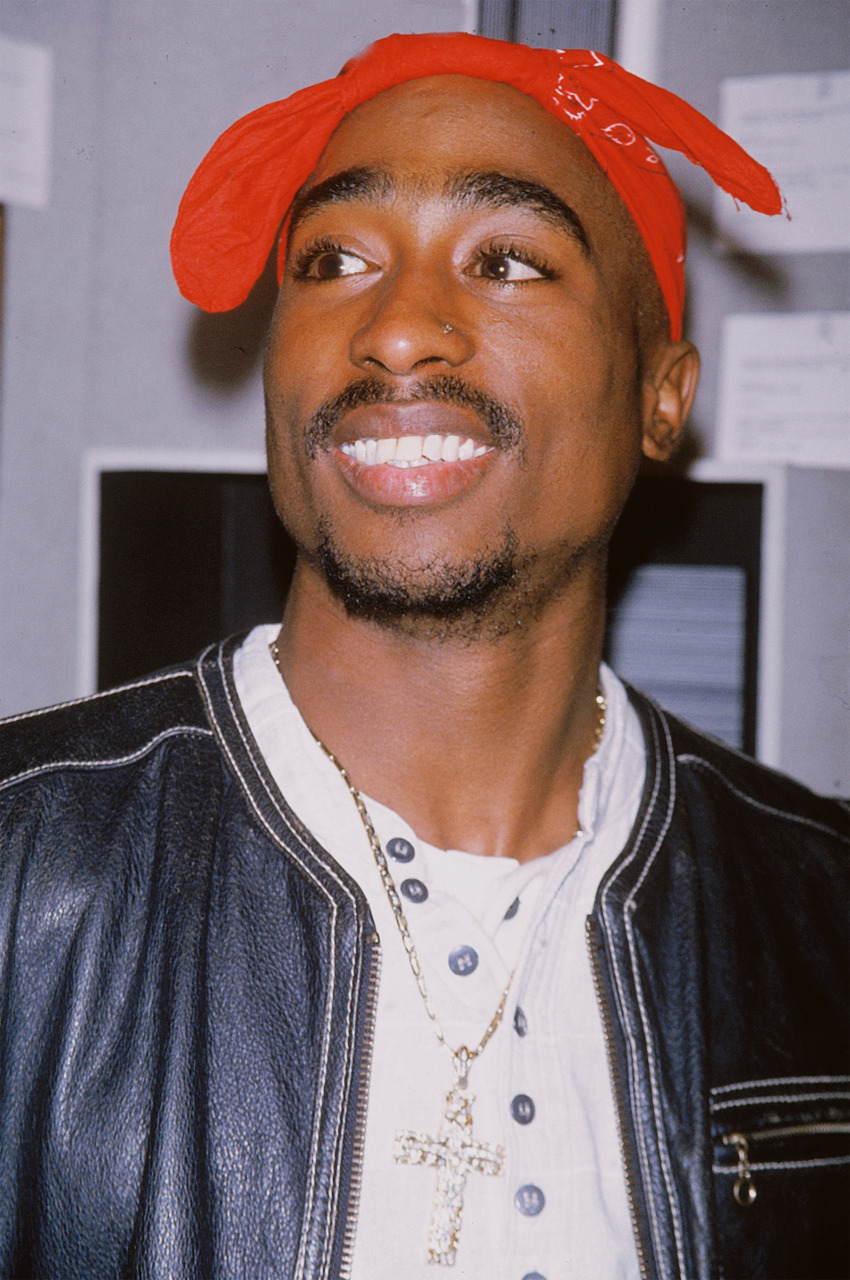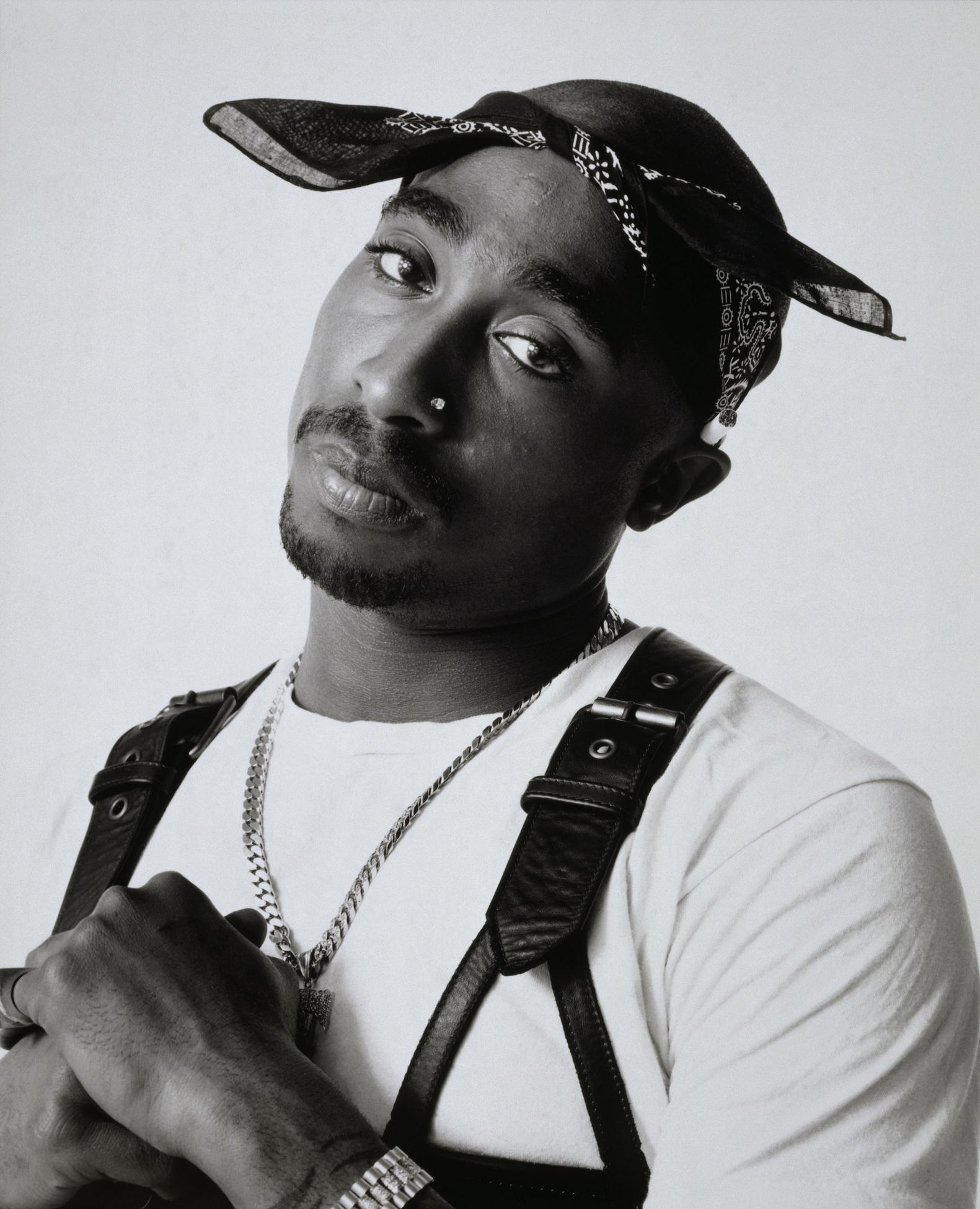Tupac's Grandmother - A Look At His Roots
When we think about the people who shape a remarkable life, our thoughts often turn to those closest to us, those who nurture and guide from the very beginning. For someone as impactful as Tupac Amaru Shakur, a figure whose voice still echoes with such force, it's natural to wonder about every influence, every person who helped mold his spirit. There’s a natural curiosity, you know, about the deep family roots, perhaps even the wisdom passed down from a grandmother.
Yet, while the idea of a grandmother's guiding hand is a lovely thought, the records we have, the details that truly stand out when we consider Tupac's early life, really put the spotlight on his mother, Afeni Shakur. It's almost as if her presence, her history, and her choices were such a powerful force that they became the very bedrock of his upbringing, perhaps even taking on a role that might otherwise be filled by a grandparent, in a way.
This piece, then, aims to explore the very real and documented influences that shaped Tupac, especially through the vibrant life of his mother. We’ll look at the environment she created, the principles she stood for, and how those elements, in their own unique fashion, paint a picture of the foundational experiences that built the artist we remember, you see, without needing to assume anything beyond what's known.
Table of Contents
- Tupac Amaru Shakur - A Life Story Unfolded
- Who Was Afeni Shakur - Tupac's Mother?
- How Did His Mother's Background Affect Tupac's Music?
- What Happened to Tupac - The Enduring Mystery?
- Where Did Tupac Spend His Formative Years?
- Was There a Breakthrough in the Case of Tupac's Passing?
Tupac Amaru Shakur - A Life Story Unfolded
Tupac Amaru Shakur, whose voice still resonates with so many, was a powerful presence in the world of music and film, really. Born on a summer day, June 16, 1971, in Brooklyn, New York, he quickly grew to become a significant American rapper and actor, leaving a truly deep mark on culture. His journey, though cut short on September 13, 1996, in Las Vegas, Nevada, continues to spark conversation and admiration, even now. He was, in some respects, a voice for many, speaking on things that truly mattered to people.
For almost thirty years, the question of who was responsible for Tupac Shakur's death remained a puzzle, a lingering shadow over his legacy. This long-standing mystery, a truly chilling cold case, saw a significant development recently. An arrest has been made in Las Vegas in connection with the case, offering a glimmer of something like closure for those who have waited so long. It's a moment that, you know, many thought might never arrive, a bit of a surprise, really.
Known to many by his stage name, 2Pac, he was a hugely successful artist, celebrated for his raw and often provocative words that spoke to people directly. These words, naturally, brought him both passionate admirers and, well, some disagreement too. He had a way of saying things that just, kind of, got people talking, creating a very strong reaction, you see.
Personal Details and Early Life
Tupac's early days were shaped by a family deeply involved in social causes, which is a pretty important detail when you think about it. He came into the world as Tupac Amaru Shakur on June 16, 1971, in New York City. His parents were Billy Garland and Afeni Shakur, both of whom were active in political movements, so that gives you a bit of a picture of his beginnings. Afeni Shakur, born Alice Faye Williams, was a political activist herself, which, you know, clearly played a part in his upbringing.
Growing up, Tupac spent most of his childhood in Harlem, a place that, in a way, just breathes culture and history. Then, in 1984, his family made a move to Baltimore, Maryland. It was there, in Baltimore, that he formed a very close bond with Jada Pinkett Smith, a friendship that would last for years. This move, you could say, marked a new chapter in his young life, bringing new connections and experiences, which, basically, is how life often goes.
| Full Name | Tupac Amaru Shakur |
| Born | June 16, 1971 |
| Birthplace | Brooklyn, New York, U.S. |
| Died | September 13, 1996 |
| Place of Death | Las Vegas, Nevada, U.S. |
| Parents | Billy Garland, Afeni Shakur (born Alice Faye Williams) |
| Known For | Influential American Rapper and Actor |
| Stage Name | 2Pac |
| Key Friendships | Jada Pinkett Smith (from 1984 in Baltimore) |
What Shaped Tupac's Early Years?
So, when you consider Tupac's early life, it’s pretty clear that the environment he grew up in, particularly with his mother's involvement in social causes, was a powerful force. He wasn't just born into a family; he was born into a family with a purpose, a sense of fighting for what they believed was right. This kind of upbringing, you know, tends to instill a certain awareness, a keen eye for justice and injustice, from a very young age. It shapes how a person sees the world, really, and what they feel compelled to speak about.
The constant movement, from New York to Baltimore, also played a part, I mean. Each new place brings different sights, different sounds, different people, and different challenges. For a young person, especially one as observant as Tupac seems to have been, these shifts could provide a wealth of material, a lot of varied experiences to draw from later on. It’s almost like he was gathering stories and perspectives just by living, which, as a matter of fact, is how many artists develop their voice.
And then there's the friendship with Jada Pinkett Smith, which, you know, started in Baltimore. Those early bonds, those connections made during formative years, can be incredibly important. They offer support, a sounding board, and a sense of shared history. It's pretty common for such friendships to provide a foundation of trust and understanding that helps a person through life’s ups and downs, actually, and for someone like Tupac, who lived such a public and intense life, those private connections must have been pretty significant.
Who Was Afeni Shakur - Tupac's Mother?
Afeni Shakur, born Alice Faye Williams, was a truly remarkable individual, a political activist whose life story is, well, pretty compelling on its own. She was not just Tupac's mother; she was a woman who stood for something, who actively worked to bring about change in the world. Her commitment to social causes and her experiences within those movements undeniably colored the atmosphere of Tupac's home life, basically, setting a particular tone for his early days.
Her activism meant that Tupac was exposed to discussions about justice, equality, and systemic issues from a very young age. He heard about struggles, about people fighting for their rights, and about the importance of speaking up. This wasn't just abstract talk; it was her life, her daily reality, which, in a way, made it very real for him. It's fair to say that her influence was, you know, pretty profound, shaping his outlook on the world and his sense of purpose.
She was a strong figure, someone who had faced challenges and continued to push forward. That kind of strength, that kind of resilience, is something that a child certainly absorbs. It teaches them about perseverance and about standing firm in their beliefs, even when things are tough. So, in essence, Afeni Shakur wasn't just a parent; she was a living example of activism and conviction, a very powerful role model, really.
The Activist's Influence on Tupac's Grandmother's Legacy
While our source information doesn't talk about Tupac's grandmother directly, it's clear that Afeni Shakur's life, as a political activist, created a powerful legacy for the family, a sort of foundational set of beliefs that would have been passed down through generations, if you think about it. Her commitment to social change meant that Tupac grew up in a household where fighting for what's right was just, kind of, part of the air he breathed. This kind of environment, naturally, shapes a person's understanding of the world and their place within it.
The impact of her work, her willingness to stand up and speak out, very likely influenced the kind of messages Tupac himself would later share in his music. It’s almost as if her spirit of resistance and her desire for a better world flowed directly into his art, even if it wasn't a direct message from a grandmother. She created a home where critical thought and social awareness were, basically, part of the daily routine, which is a pretty strong influence, anyway.
So, in considering what might have been a "grandmother's legacy," we can perhaps see Afeni's activism as the most prominent, documented family legacy that directly touched Tupac. It's a legacy of courage, of speaking truth, and of advocating for those who might not have a voice. This is what was truly passed down, a way of looking at the world that informed so much of who he became, you know, and what he stood for.
How Did His Mother's Background Affect Tupac's Music?
It's pretty undeniable that Afeni Shakur's background as an activist had a truly deep and lasting impact on Tupac's music, basically. His songs often carried messages of social commentary, struggles within communities, and calls for change, which, in a way, mirrored the very themes his mother dedicated her life to. He wasn't just rapping about personal experiences; he was also speaking to broader societal issues, something that clearly came from his upbringing.
The raw, often controversial nature of his lyrics, the way he didn't shy away from difficult topics, could very well be a reflection of the frank and open discussions that likely took place in his childhood home. When your mother is a political activist, you're exposed to a certain kind of truth-telling, a directness about the world's problems, which, you know, tends to stick with you. This kind of honesty became a hallmark of his artistic expression, a really distinctive part of his sound.
His music, in many respects, became a platform for the very ideas and frustrations that activists like his mother had been vocal about for years. He took those concepts and translated them into a language that resonated with a whole new generation, giving voice to their experiences and observations. So, in a way, his mother's life work found a new, powerful medium through her son's art, which is, you know, a pretty remarkable connection.
The Sound of Activism in Tupac's Grandmother's World
If we think about the "world" that shaped Tupac, a world that might have been influenced by a grandmother's presence had she been documented, it was truly filled with the "sound of activism" from his mother, Afeni. Her life was a living example of fighting for what you believe in, and this was the melody, so to speak, that played throughout his childhood. This constant exposure to social justice ideas and the importance of speaking out against wrongs, you know, became a part of his very being.
Tupac's passionate delivery and his deep lyrical content, which often touched on themes of poverty, systemic unfairness, and the quest for respect, clearly echoed the sentiments that were at the heart of his mother's political work. It's almost as if he absorbed her dedication to these causes and then channeled it through his own artistic lens, creating something truly powerful. He had a way of making these complex issues understandable and relatable to so many people, basically.
So, while we might not hear the direct voice of a "Tupac's grandmother" in his songs, we certainly hear the reverberations of a family history steeped in conviction and a desire for change. This is the background that informed his unique artistic voice, a voice that became a symbol for many. His art, in a way, carried forward the spirit of activism that was such a central part of his mother's life, and by extension, the broader family story, which, as a matter of fact, is pretty inspiring.
What Happened to Tupac - The Enduring Mystery?
The sudden passing of Tupac Shakur on September 13, 1996, in Las Vegas, Nevada, has remained one of the most talked-about and truly heartbreaking mysteries in modern cultural history. For nearly three decades, the question of who was responsible for his death has hung in the air, a constant topic of discussion and speculation among fans and investigators alike. It's a puzzle that, you know, has seemed almost impossible to solve, leaving many feeling a sense of incompleteness.
He was shot on September 7, 1996, after attending a boxing match, and he passed away from his injuries several days later. The circumstances surrounding the shooting were, well, pretty murky from the start, leading to countless theories and very few concrete answers. The lack of resolution for such a prominent figure has, basically, added to the mystique and the sadness surrounding his untimely end, making it a story that just keeps getting revisited.
The ongoing search for answers, the constant re-examination of the evidence, really speaks to the profound impact Tupac had on people. His death wasn't just the loss of an artist; it felt like the loss of a voice that spoke for many, a voice that was still evolving. So, the mystery isn't just about a crime; it's also about a legacy that was cut short, leaving a lasting impression on the collective memory, you know, for so many people.
Unanswered Questions Around Tupac's Grandmother's Time
When we think about the enduring mystery of Tupac's passing, it's a story that, in a way, casts a long shadow over the entire family narrative, including any unrecorded stories from a "Tupac's grandmother's time." The suddenness and the violence of his death left a void, not just in music, but within his personal circle, a void that, basically, could never be truly filled. It's a kind of open wound that affects everyone connected to him, even decades later.
The lack of immediate answers, the years of speculation, added layers of complexity to the family's experience of grief and loss. It wasn't just mourning; it was mourning mixed with a persistent quest for justice, a search for clarity that seemed to stretch on forever. This kind of unresolved situation, you know, can really weigh heavily on a family, making it hard to move forward completely, to be honest.
So, while the specific details of a "Tupac's grandmother" are not part of the public record we're using, the impact of this unsolved mystery certainly ripples through the family's story. It's a reminder that even for figures who touch millions, their personal tragedies are deeply felt by their loved ones, and the unanswered questions become part of their shared history, which, as a matter of fact, is pretty sobering.
Where Did Tupac Spend His Formative Years?
Tupac's formative years were spent moving through different environments, each contributing to the person he would become. He was born in New York City, a place that, you know, just buzzes with energy and a multitude of stories. Growing up, he spent a good portion of his childhood primarily in Harlem, a neighborhood steeped in cultural richness and a strong sense of community. This early exposure to Harlem's vibrant atmosphere and its unique challenges certainly played a part in shaping his perspectives, basically.
Then, in 1984, a significant shift occurred when his family relocated to Baltimore, Maryland. This move meant a new school, new friends, and a different kind of urban landscape. It was in Baltimore that he truly began to explore his artistic talents more formally, attending the Baltimore School for the Arts. This period allowed him to develop skills beyond just rapping, including poetry and acting, which, you know, would become central to his career later on.
The transition from the bustling streets of Harlem to the slightly different rhythm of Baltimore undoubtedly offered him a broader view of life in America. Each place, in its own way, presented different social dynamics and personal experiences, all of which would eventually find their way into his powerful lyrics. So, these geographical shifts were, in some respects, like chapters in his personal education, providing him with a rich tapestry of life to draw from.
From Harlem to Baltimore - Tracing Tupac's Grandmother's Path
When we trace Tupac's path from Harlem to Baltimore, we're really looking at the journey of a young person shaped by the environments his family, including his mother, chose for him, even if we don't have details of a "Tupac's grandmother's path" directly. Harlem, with its deep historical roots and its reputation as a hub of Black culture, certainly instilled in him a sense of identity and belonging, a very strong foundation, you know. It's a place where stories are told on every corner, basically.
The move to Baltimore, then, opened up a new chapter, offering different experiences and connections. It was a change of scenery that, arguably, broadened his understanding of the world beyond what he knew in New York. This kind of geographical shift, for a creative mind, can be incredibly stimulating, providing new observations and new ways of looking at things. It's almost like adding new colors to his artistic palette, anyway.
So, while we're following Tupac's own journey, it's important to remember that these moves were decisions made by his family, reflecting their own circumstances and aspirations. These choices, in a way, created the backdrop against which Tupac's talents blossomed, and they certainly contributed

Tupac Shakur photo gallery - high quality pics of Tupac Shakur | ThePlace

Tupac - Tupac Shakur Photo (24635936) - Fanpop

Tupac Shakur photo gallery - high quality pics of Tupac Shakur | ThePlace